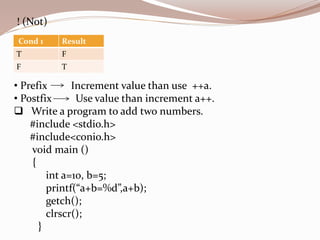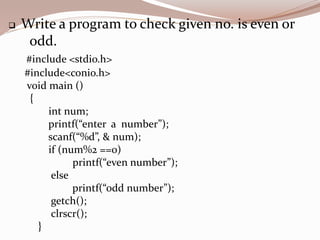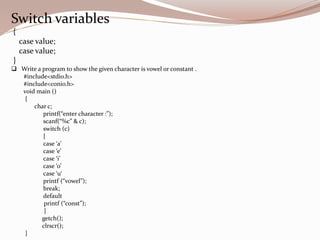This document provides an overview of the C programming language, including its history, uses, basic environment, data types, variables, operators, control structures like if/else statements and loops. It begins with the origins of C in the 1970s and explains that C combines high- and low-level language features, making it useful for systems programming tasks like operating systems and compilers. Examples are provided throughout to illustrate core C concepts like getting user input, performing calculations, and repeating actions with for, while and do-while loops.
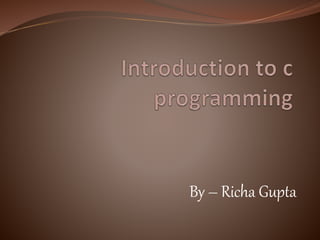
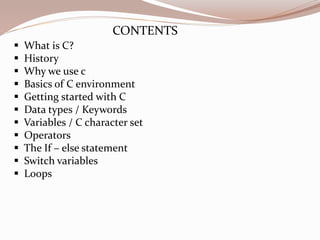


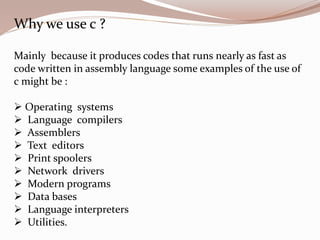
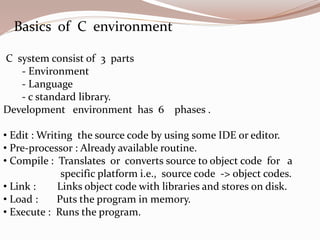

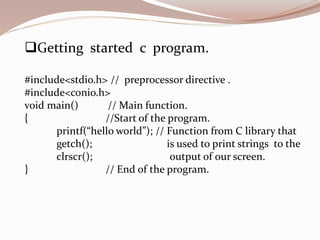

![Variables
These names of variables consists of numbers , letters ,
and underscores.
The restriction on names is that you may not use
keywords as the name of variables or functions.
Declarations are important in multi file programs where a
variables defined in one file must be referred to second
The C Character Set
A character denotes any alphabet , digit or special
symbol used to represent information.
Alphabets A ,B ,……………, Y , Z
A , b ,………….., y , z
Digits 0 , 1 , 2, 3 , 4 , 5 , 6, 7 , 8 , 9
Special symbols ~ ‘ ! @ # % & * ( ) _ - + =
| { } [ ] ; : “ ‘ < > , . ? /](https://image.slidesharecdn.com/introductiontocprogramming-140915171913-phpapp02/85/Introduction-to-c-programming-10-320.jpg)


